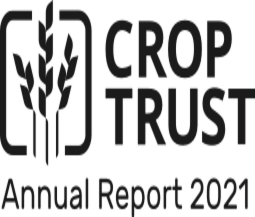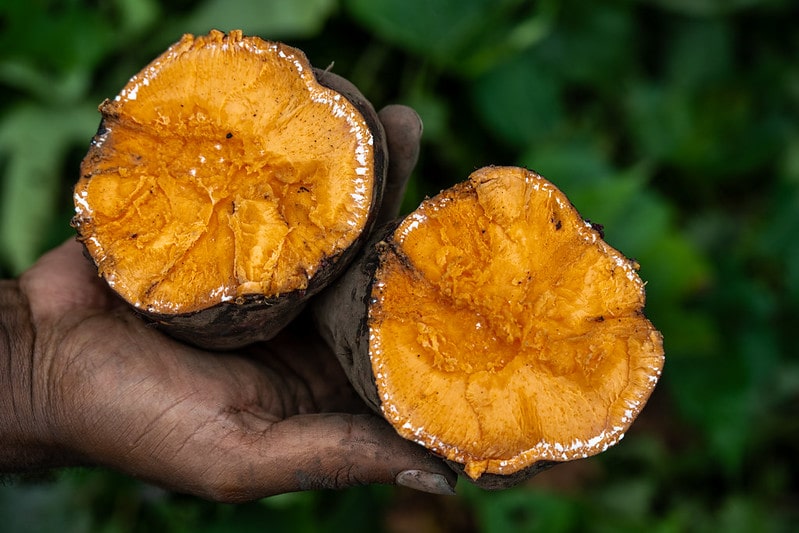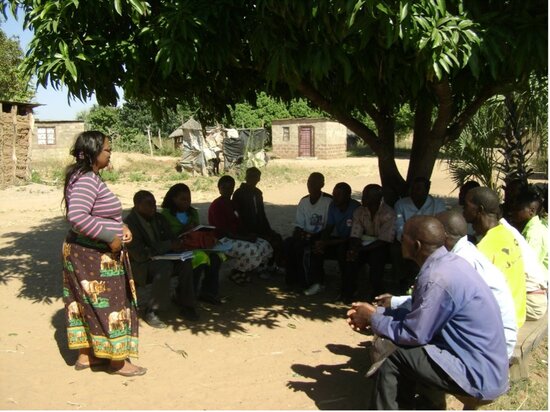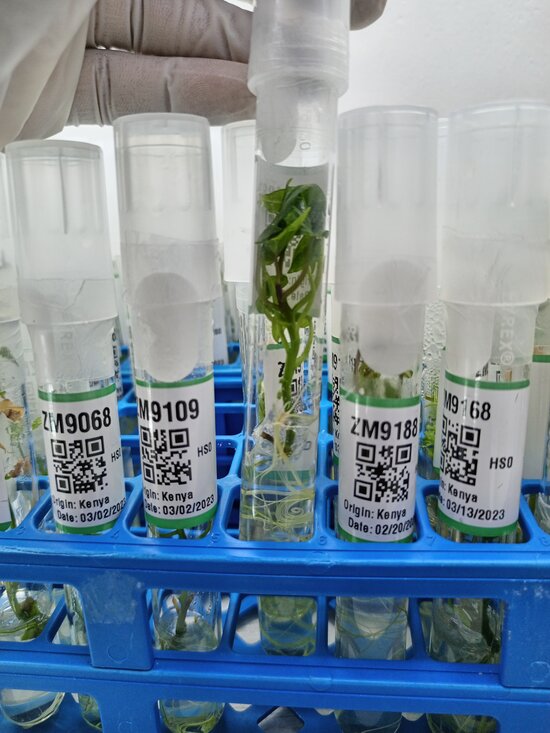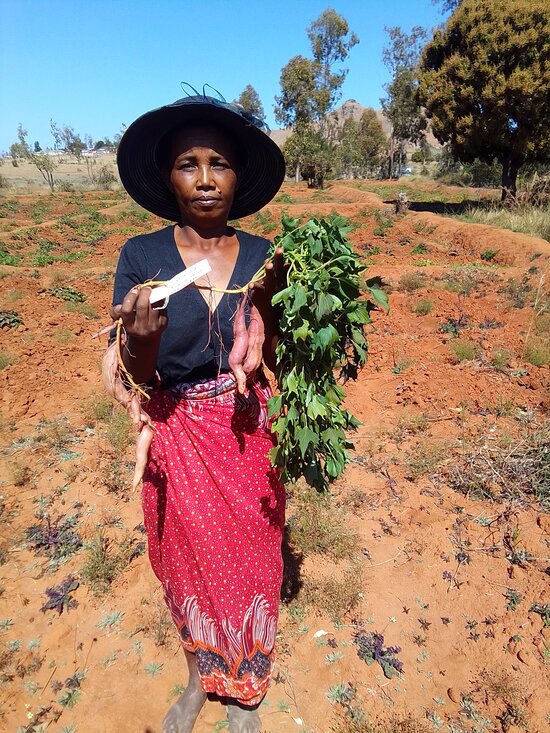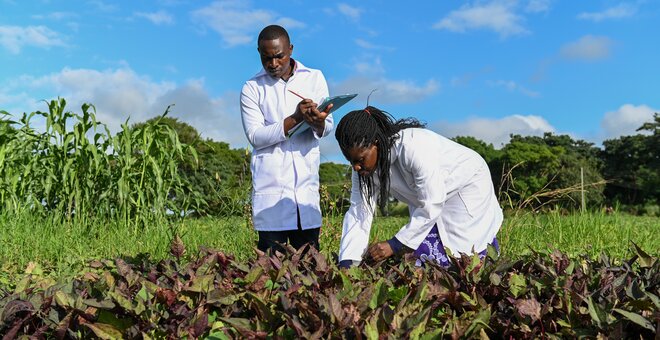Sweetpotatoes on Ice
Since 2022, the Crop Trust, the International Potato Center (CIP), the Zambia Agricultural Research Institute (ZARI) and Fiompiana Fambolena Malagasy Norvéziana (FIFAMANOR) in Madagascar have collaborated on the “Sweetpotato, a model for food security and long-term conservation of biodiversity” project, funded by the UK Government’s Darwin Initiative.
Sweetpotato, propagated by cuttings, is usually conserved in field or in vitro collections. However, cryopreservation, using liquid nitrogen to store plant parts at ultra-low temperatures, is the best long-term conservation method. This process can potentially conserve plant samples for centuries.
The project employs a ‘clean & share’ conservation approach for sweetpotato landraces. Vines from Madagascar and Zambia are sent to CIP’s facility at the Kenya Plant Health Inspectorate Service (KEPHIS). They are cultured in vitro and cleaned of diseases using heat treatment on meristems. The disease-free material is then multiplied and offered to farmers, and also sent to CIP in Peru for cryopreservation.
In 2023, the project focused mainly on vine multiplication for dissemination to farmers for planting in both partner countries. More than 350 in vitro plantlets certified as free of infectious diseases from 30 landraces were repatriated to Madagascar from CIP in Nairobi, with plants from 28 landraces surviving. Over 600 clean plantlets from 23 landraces were repatriated to Zambia, with plants from 22 surviving shipments.
In 2023, the Sweetpotato Project also held two virtual capacity-building workshops for partners. One focused on DArTseq, a cost-effective platform for plant DNA analysis, while the other workshop covered sweetpotato disease management. The training on DNA analysis allows our partners to interpret molecular data to quantify the genetic similarity between vines, allowing them to prioritize new diversity to be conserved by cryopreservation.
From the breeding perspective, I have seen the incredible contribution that incorporating local landraces into our sweetpotato program has made to our ability to produce adapted varieties that the population likes to eat. But first they have to be conserved.
